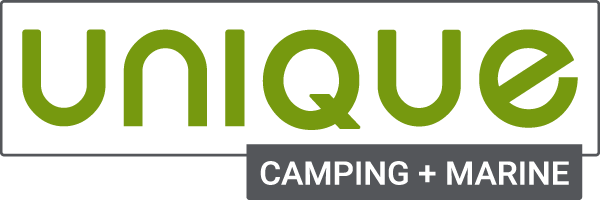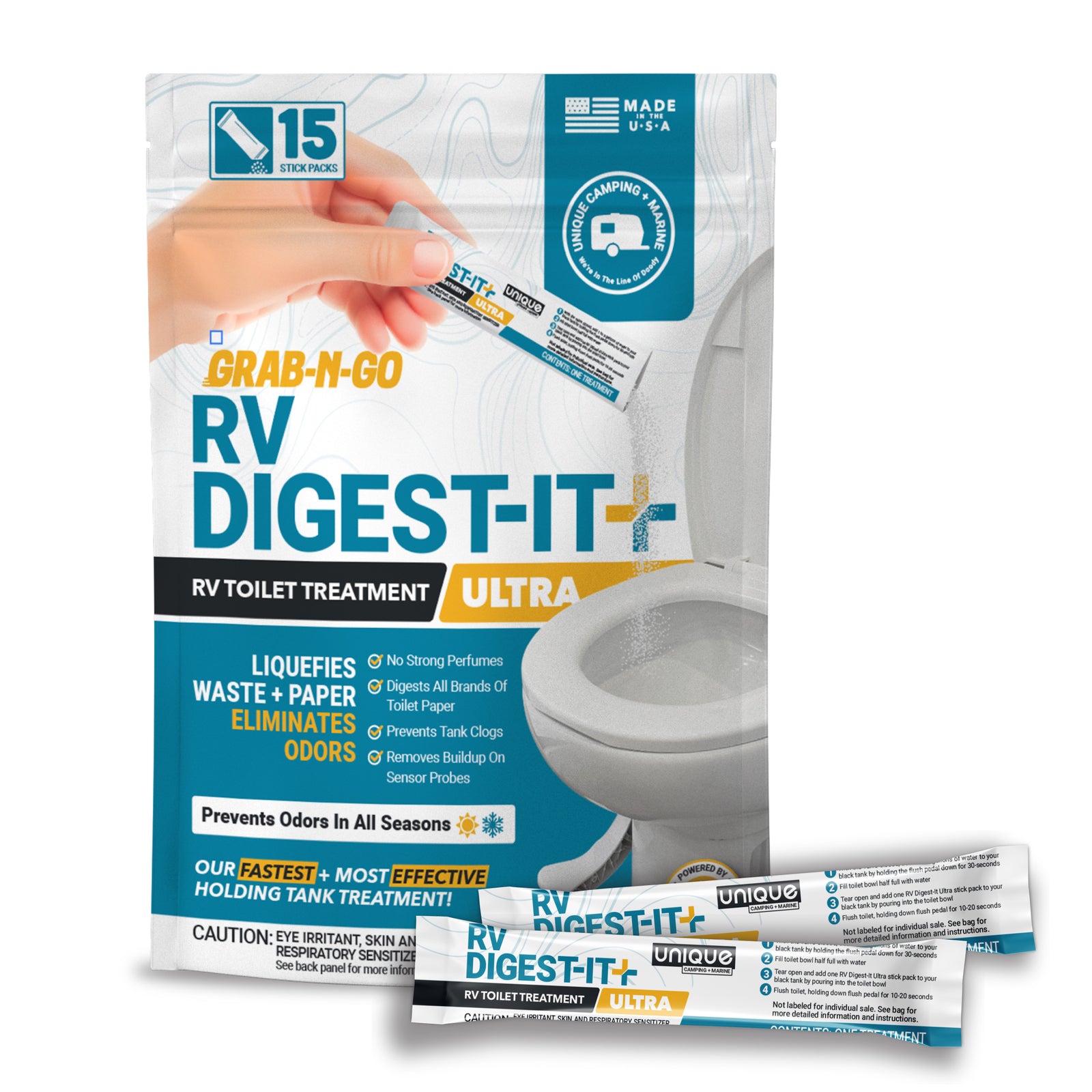
Read series from the beginning
You might think dirty water is just dirty water and it doesn’t matter which “dirty water tank” it ends up in, but controlling what goes into each type of tank is important to what type of cleaning processes you use and how easily you can control odors and clogs.
Black Tanks
The only things that should ever make it into your black tank(s) are water, urine, poop, toilet paper, and tank treatments. Feminine products, flushable wipes, paper towels, trash, plastics, and other items will not break down properly in your black tank and will almost certainly cause clogs. Popular RVing advice suggests that you should only use RV toilet paper in your RV toilet. Normal toilet paper that you would use at home will probably break down about the same and won’t contribute to clogs and build-up if you’re using high-quality, solid-reducing treatments and practicing the right habits, but if it makes you feel better to use RV toilet paper, have at it!
Guide: Is RV Toilet Paper Necessary?
Gray Tanks and Galley Tanks
Large and even small food debris should never go down the drains to your gray tank(s) because enough food particles could lead to clogs and will certainly lead to odors. You must also be careful about letting too much food grease down the drain because grease can easily cause sensor misreads and odors. Dry campers (boondockers) should be especially aware of how much food grease and debris goes into their gray/galley tank(s) because as the water level in the gray/galley holding tank(s) rises, the grease hanging out on the surface of the water will cling to the tank walls and sensors, increasing the likelihood of incorrect sensor readings. The best way to control this is to wipe your dishes before you wash them and place a strainer cup in your sink drain to catch small particles of food.
It’s important to note that even if you employ these habits, there will still be amounts of grease that will get into your gray/galley tank(s) from normal dishwashing, shampoo, lotions, human hair, and soap, but if you are using the right treatment product in your gray tanks (like Unique RV Digest-It Plus) and regularly deep cleaning, it’s unlikely to negatively affect your camping experience. Because we recommend using RV Digest-It Plus in your gray and galley tanks (which adds beneficial bacteria and enzymes), we also recommend that you use a dish soap that does not kill bacteria (like Dawn Ultra dish soap). Antibacterial soaps and chemical cleaners that get washed down the drains will negate the work of RV Digest-It Plus and could lead to the misreading sensors and odors that you’re trying to prevent.
Just like avoiding very unhealthy foods to promote peak health in your body, you must avoid putting unhealthy things in your holding tanks for them to continue functioning well. Refer to our guide on What to Allow in Your RV Holding Tanks for more details on what does and does not belong in your black and gray water tanks.
While mastering these habits is great, in the next article we will start walking you through the best products to use so that The Unique Method will return the highest level of success for you.
As an Amazon Associate, Unique Camping + Marine earns from qualifying purchases

Prevent Common Problems In Your Tanks!
From misreading sensors, preventing clogs, or eliminating odors, we've got you covered no matter how you camp! All our best holding tank tips and trick information plus more can be found conveniently in one place when you download our FREE Unique Method Field Guide PDF. Achieve holding tank bliss today!
Get The Free Download Get The Free Download



